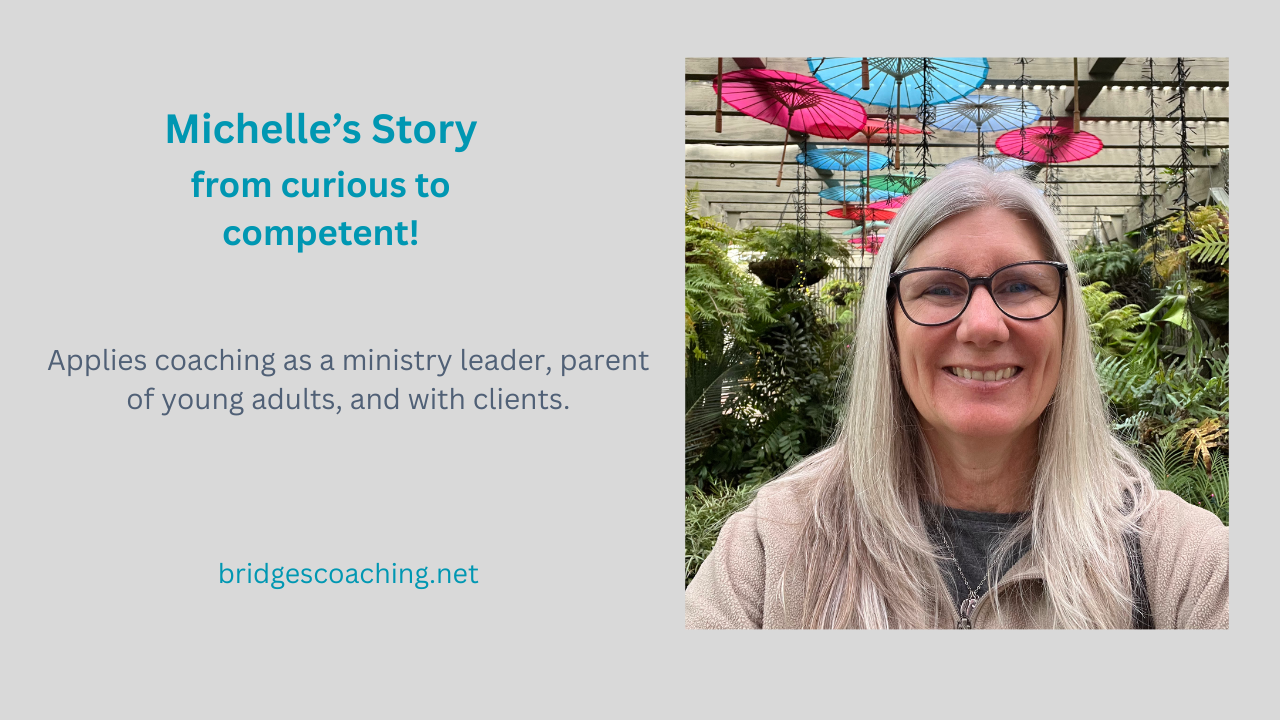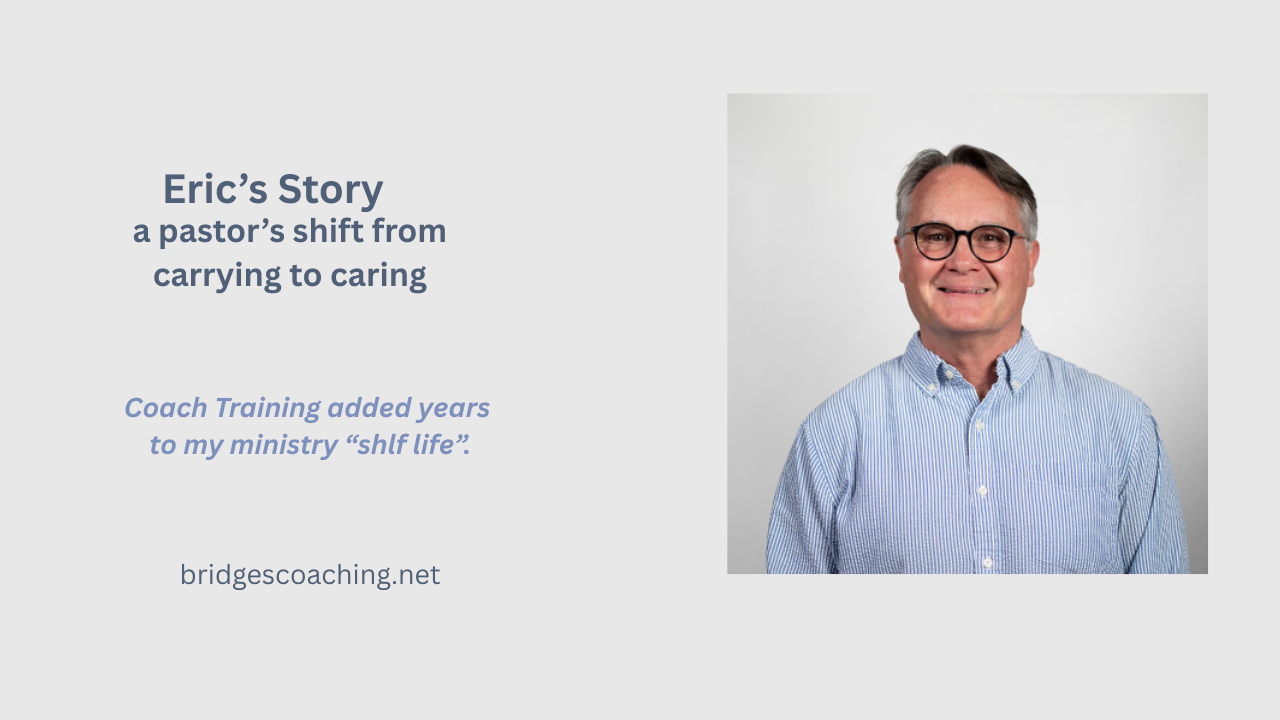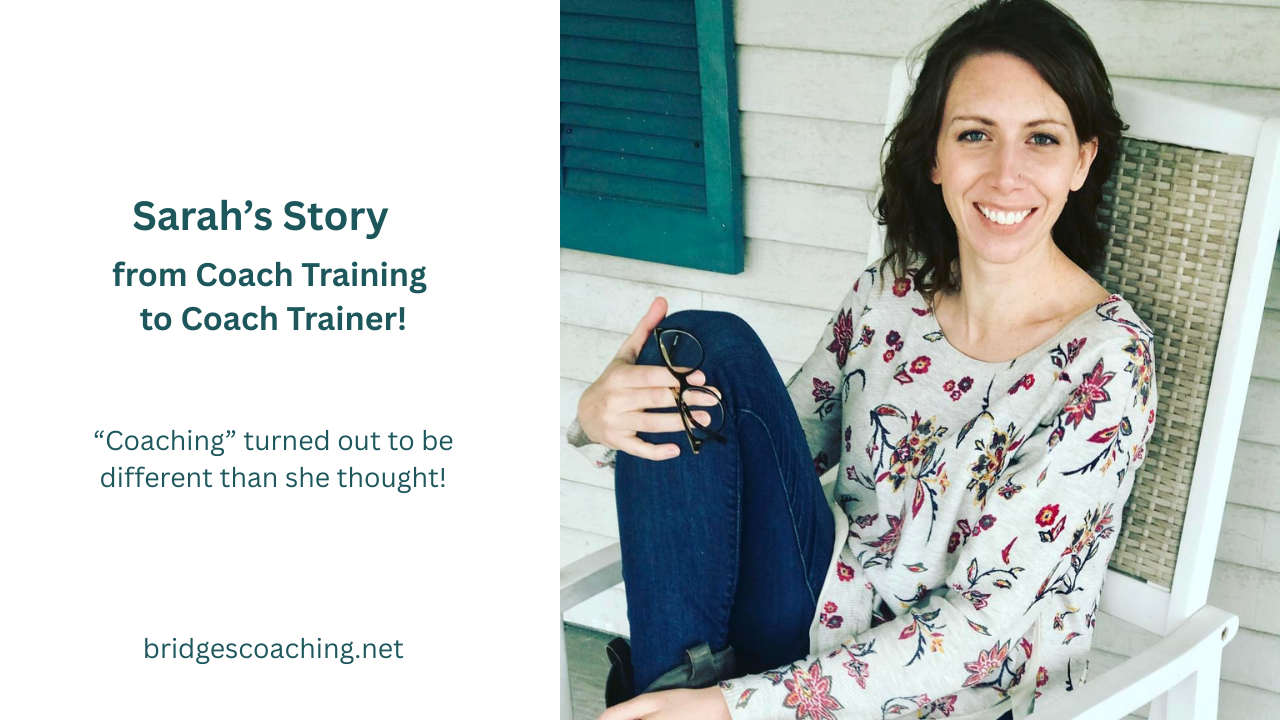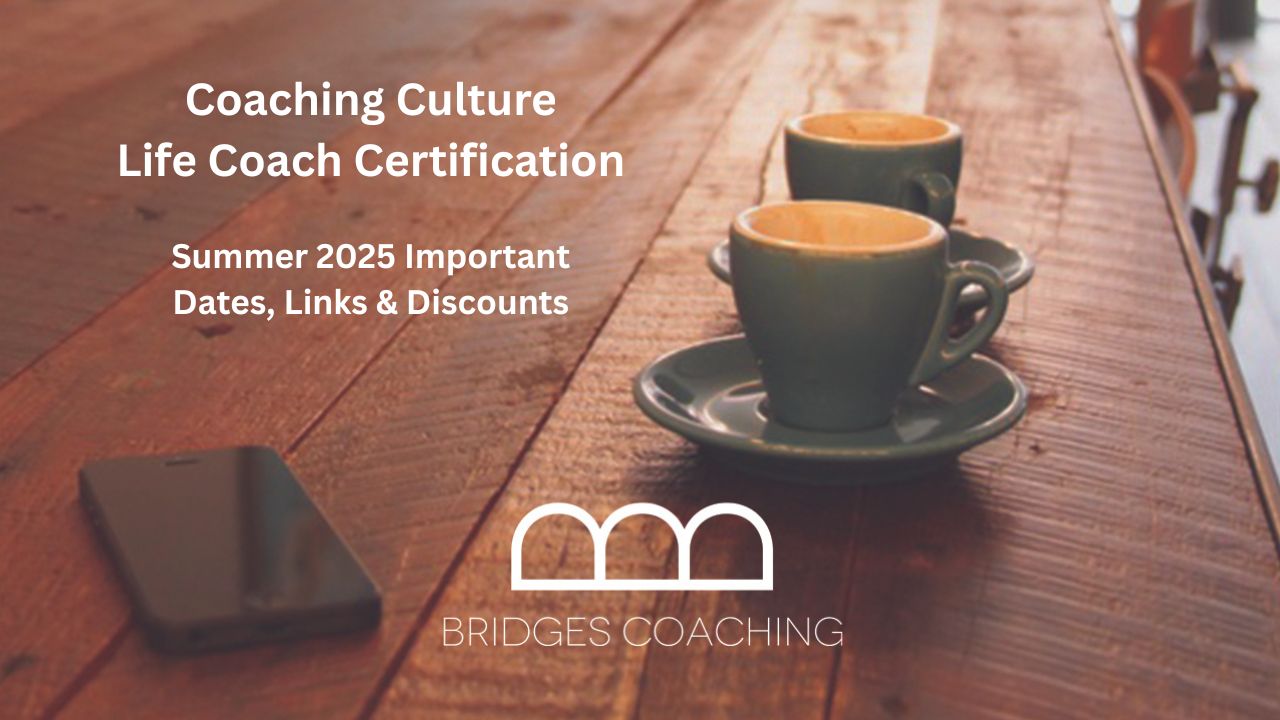Three Kinds of Readers - and CTA's for all Three!

There are basically 3 kinds of people reading the Bridges blogs, and we have a CTA (call to action) for each kind.
1) Those who have taken Bridges Coach Training and want to stay in the groove and be reminded of ways to keep a coaching mindset in the forefront of their interactions. (They get that Coaching IS discipleship, in that its primary tenet is to help people learn to discern God's voice and have the courage to follow - NOT solving their problems for them or telling them what to do.)
If you have already taken coach training - can I ask you to open the link below and post it on your preferred social media and share a line or two about what coaching has meant to you and how you have used it?
Why Coach Training Isn't Just For Potential Professionals
2) Those who are thinking about taking Coach Training but may not be sure of the timing. Can I propose that you ask yourself some of these questions to help discern your decision:
- Can you name what is holding you back? If it's a ...
Meet Michelle: Using Coaching in 3 arenas!

Meet Michelle! Michelle hails from Diamond Bar, CA, doesn't that seem wonderful! She's been a part of Bridges for over a decade now and facilitates our Next Level Coach training. I love what she shared about coach training!
Okay - Third Essential for a Growth Mindset

We've been looking at the 2, maybe 3, essentials for a Growth Mindset.
Without #1 - humility - we will have a hard time being willing to acknowledge there is something we need to focus on.
Without #2 - intentionality - we acknowledge the problem or the goal, but we haven't actually moved the needle. It's like when we say, "You know what I need to __________________ (lose some weight or insert other Aha moment here)" or "I guess I do have a problem with __________________ (anger, insecurity, addiction, or whatever)" or "If I don't start, I'll never ______________ write that book build that thing, find a spouse, get that degree."
You can't address something you can't name.
But perhaps, before it all, or maybe during it all, the greatest essential for a growth mindset is HOPE!
Without #3 - Hope - it's like trying to drive a car with no fuel. Hope fuels our preferred future. Hope helps us see what could be. Hope changes everything.
Without hope, humility is just a sad recognition o...
2 Essentials For A Growth Mindset (okay - maybe 3) [Part 2]

A Growth Mindset means you don't need to be stuck. You can move forward.
People get stuck when they feel there is no way out; we all tend to excuse ourselves from seeing what needs to be seen and doing what needs to be done to move ahead.
Last time we talked about the 1st essential for a growth mindset - the need for humility. If we can't see where we need help, we are not likely to receive what we desperately need. (Probably worth the click if you haven't read it yet.)
The promised 2nd essential is: Intentionality.
When I worked with youth years ago, we promoted the idea of spiritual journeying. If you are not on a journey with God, you are missing out on experiencing your faith! If you can't say what you are learning or how you are growing, you are likely dealing with pride or apathy.
Humility is the antidote for pride. Intentionality is the antidote for apathy.
Apathy says things like, "What? I'm just doing me", "Don't be so serious all the time - just relax and enjoy life"...
Meet Eric: A Minster's Take On Coach Training!

Next up in our "Meet _________" series is my absolute favorite - my husband, Eric. He's been in this with me from the beginning, so I asked him a few questions.
How did you first hear about coaching?
I first heard about coaching from my wife, Cindy, who started Bridges Coaching. I must admit I did not understand it at first, and what I did not understand, I became skeptical about at first. I wanted to know how it came from a biblical foundation. Little did I know, Jesus used coaching regularly as He worked with His disciples in the Bible. I just needed to look for it!
What prompted you to take the training?
Because a large part of what I do in ministry involves caring for people, I was burned out. Eventually, I sought counseling help through a ministry called Care for Pastors in Orlando, Florida. My problem was that I was caring for people, but I was also carrying people. In time, the counseling and the coach training helped me let go of the ownership of a person’s problems and al...
Should I or Shouldn't I? And The Reasons That Drive Us

We all ask that question about a pile of things every day- little things, big things, present things, future things, relational things, tactical things, all. the. things.
Let's take a look.
Here are some common questions > Here are some common ways we reason.
Should I get a latte on the way to work? > It's been a rough week, any little extra comfort is worth it.
Should I talk to my friend about her situation? > Ah... She knows I am available if she needs me.
Should I pursue a different position? > If it's meant to be, it will come to me.
Should I finally start that project? > I'm not sure if the juice is worth the squeeze.
Should I be making any adjustments to my routine (diet, exercise, devotional patterns, joining a small group, investing more in retirement)? > I've got a lot on my plate right now, best not to upset the apple cart.
Maybe you have had some of these questions. Maybe you have reasoned some of these reasons.
The Proverbs are all about choosing well. In fact, mo...
What Is Coaching? [The Skinny and The Blunt Truth]

"What is Coaching?" I whispered to the rep from Southwestern Christian University when I was considering getting my Master's there.* I was a little embarrassed that I didn't really know.
How about you? Coaching is a buzzword and has been steadily gaining popularity since I first asked that question over 15 years ago.
Webster's primary definition for coaching is the noun version - like Cinderella's coach, or a stagecoach from the Wild West. In that case, coaching is a means to get from one place to another - like our modern-day Uber or Lyft. The second definition Webster gives is "a tutor" or "one who instructs or trains".
Here's the blunt truth. No one owns the word "coach," and it is used differently by different people. The first thing that probably comes to most people's minds is some sort of sports coach, or maybe a skills coach that trains you in a specialty area. Some nutrition and fitness coaches would fall into this definition as well. These type of coaches have their own pa...
Meet Sarah: Her Story from Coach training to Coach Trainer!

Sarah has been a part of Bridges Coaching from near the beginning. Like many, when she first looked into coaching, she thought she could help people by sharing what she was seeing. She had grown up in the faith and had considerable training, she wanted to care for others and help them grow in their faith.
Here's a bit of her story:
What motivated you to take coach training?
I took coach training because I wanted to help people. I had my ideas of what helping looked like, but those ideas got radically changed during that initial course. Turns out there is a far more effective, efficient, transformative way to help people!
What are a couple of things you learned that you didn’t know about coaching before your training?
The power of truly listening and the power of curiosity. For my entire life, I had underestimated how just those two things can create a space where problems get solved and creativity happens.
What did you love most about coach training?
Coach training didn't j...
How About You - Whatcha Working On? or Where are you investing?

Can you answer one or both of these questions?
Being grounded as a growing follower of Jesus means we are going somewhere and/or doing something. We should be able to share how we are growing personally, what God is working in us, and where we are heading professionally in our work or volunteer investments.
If I were asked these questions, I could answer wholeheartedly. I'm growing in trust and rest, working on a new book on pendulums and investing in this next chapter of Bridges Coaching.
There are also personal applications for these questions. We may be working on health goals, cooking proficiency, a project in our home. We may be investing in building friendships or our retirement account.
The bottom line is that when we can answer these kinds of questions without reservation, we are on a journey. We are living life intentionally and not simply letting life happen around us.
Unfortunately, letting life happen to us is fairly common.
Oh, sure, maybe people have a retirement...
Summer 2025 Cohort Important Dates, Links, and Discounts

Cindy Scott here from Bridges Coaching. Here's some important info if you are interested in coach training this summer. Please let us know if you have any questions or if we should chat!
We are excited about our upcoming summer Life Coach Certification cohort! Have you considered joining in? Should you think about it? We are starting to fill the slots and wanted to make you aware of some important dates, links, and discounts.
Though it is gaining popularity more and more "Coaching" is more than a buzzword. There is a craft to Active Listening and Asking Powerful Questions. In fact, we believe Coaching is a modern word for discipleship as we help people engage with God and His plans for them. (If you haven't looked at the website lately we have updated a bit. It has more info and I would love your feedback!)
If you would like to have greater impact for the kingdom of God while not taking the weight of another's journey on your shoulders, maybe it is your time for Coach Training!
H...
